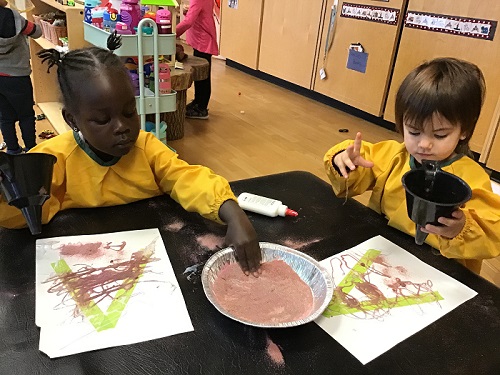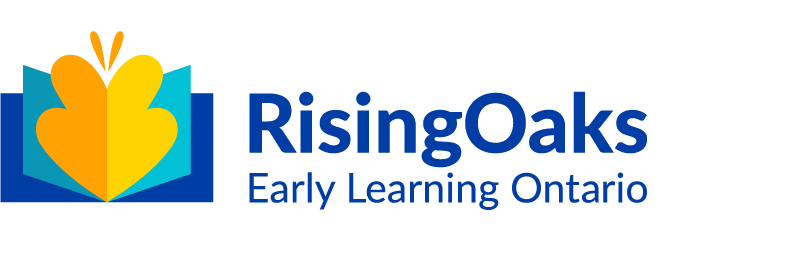Early literacy in preschool is something as educators we value and we see the children taking great interest in. Our classroom is set up to allow the children to develop letter recognition, letter sounds, sight words and expanding their vocabulary throughout their play. The children love to read with an educator, both in large and small group settings. We discuss the story, what we see in the photos and the children ask many questions. This is another great opportunity for us as educators to bring literacy into the classroom and for the children to have the opportunity to share their thoughts and personal experiences. The children have a few favorite books that are read repeatedly.
We have observed some of the children engaged with the magnetic letters attempting to spell their names. Educator, Mary decided to expand on that interest by creating a messy alphabet activity. She asked each child, “Do you know how many letters are in your name?
Ezra said, “Four” and then spelled out his name “E-Z-R-A.”
Mary asked Amani the same question and she responded with, “Six” and then proceeded to spell out her name “A-M-A-N-I.”
We used painters tape to create each number on a piece of white paper and then painted over the number using LEGO®. Once dried we peeled the tape off to reveal the number.
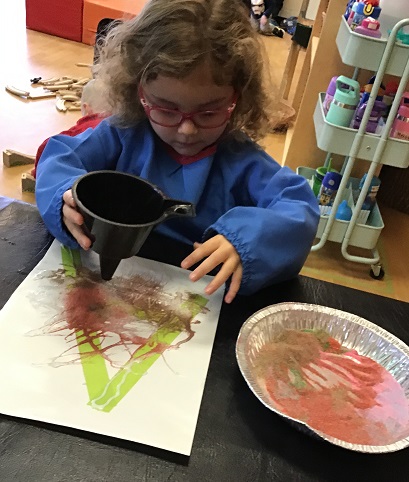

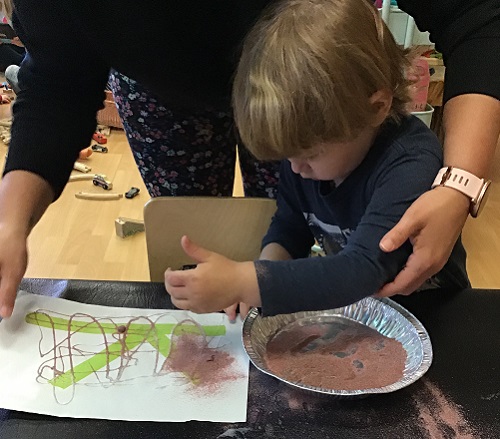
The next day we continued with exploring literacy as Mary asked each child, “Do you know what the first letter in your name is?” Alekza said “A,” Ava responded with “A,” and Easton said “E.”
Again we used painters tape to create each letter on the white paper, this time to create messy sensory activity using glue and pouring coloured sand on top - what fun! Just like the paint, we waited for the glue to dry and then peeled the tape off to reveal the letter.
The children continue to practice letter recognition using many different materials such as magnets, puzzles, listening to stories and listening to songs. Literacy typically refers to reading and writing skills, however early learning literacy skills can start developing in the primary childhood years including letter recognition, print awareness, phonological awareness and emergent writing skills. Early literacy skills that are developed during the early years of a child’s life can help them become successful later on. Building literacy and language skills early can create a love of books and excitement for learning. Research shows these early literacy skills are best developed through talking, singing, reading, writing and playing.
